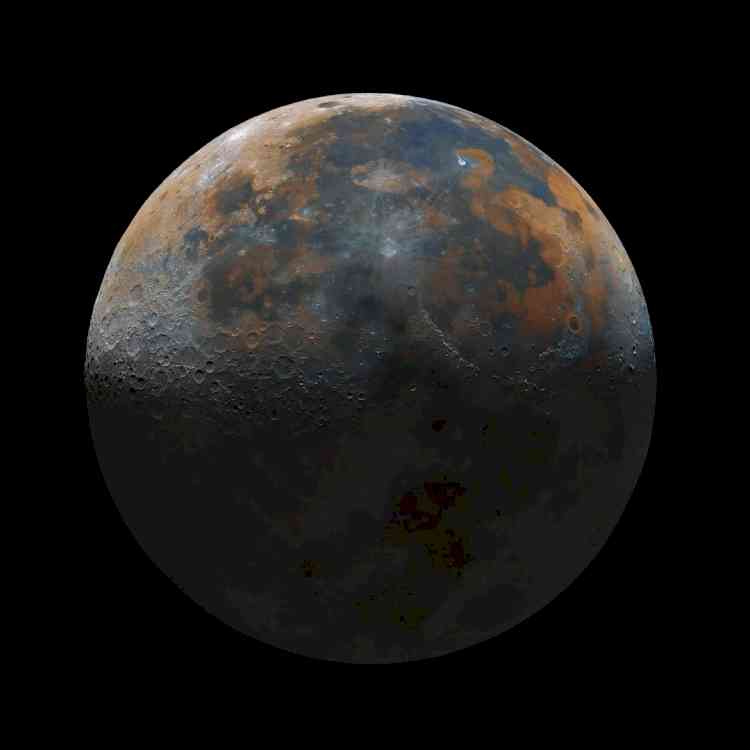China's Chang'e-5 probe proves presence of water on Moon: Report
There is as much as 120 parts per million of water (as hydroxyl and/or H2O) in the lunar regolith, new data from the lander of China's Chang'e-5 lunar probe has revealed.

Beijing, Jan 10 (IANS) There is as much as 120 parts per million of water (as hydroxyl and/or H2O) in the lunar regolith, new data from the lander of China's Chang'e-5 lunar probe has revealed.
According to space analysts, this fresh discovery of a key resource on the moon is great news for humanity's endeavour to build and operate research stations and even migration to Mars, the Global Times reported.
The presence of lunar water was discovered by a joint research team from the Institute of Geology and Geophysics of the Chinese Academy of Sciences. They made observations of the water signals in reflectance spectral data from the lunar surface collected by the Chang'e-5 lander. Their study was published in the peer-reviewed journal Science Advances.
In the study, water on the Moon "is mostly attributed to solar wind implantation", the report said.
Before this, many orbital observations and sample measurements completed over the past decade have found evidence of the presence of water (as hydroxyl and/or H2O) on the moon. However, no in-situ measurements were previously conducted on the lunar surface.
The existence of water could support human survival on the moon and help generate fuel for spacecraft such as rockets, Song Zhongping, a space analyst and TV commentator, was quoted as saying.
Carrying some two kg of lunar samples, China's Chang'e-5 safely landed at a designated landing site in Siziwang Banner of North China's Inner Mongolia Autonomous Region on December 17, 2020.
The researcher said that the Chang'e-6 and -7 missions will continue to search for water on the Moon.
China plans to launch the Chang'e-7 probe to the lunar South Pole first, which will be followed by the Chang'e-6 for a sampling and return mission from the lunar South Pole.
Chang'e-8, the last piece of the fourth phase, will construct a primary form of the International Lunar Research Station, the report said.


 IANS
IANS 













